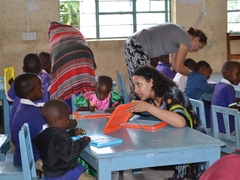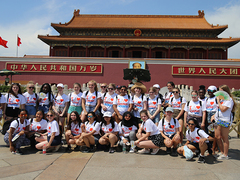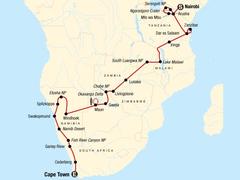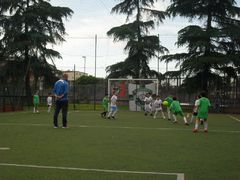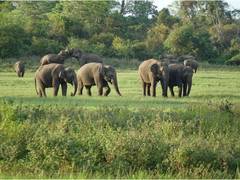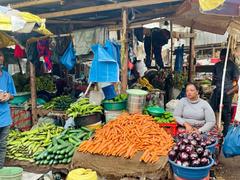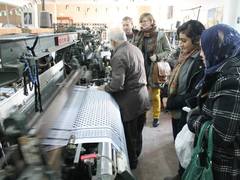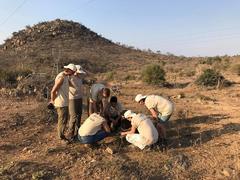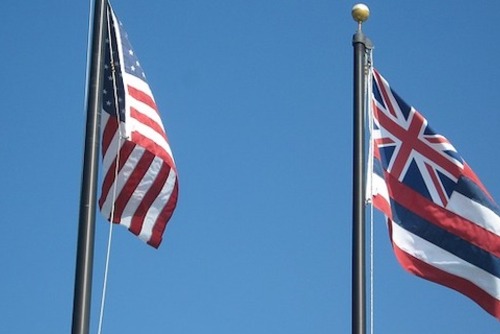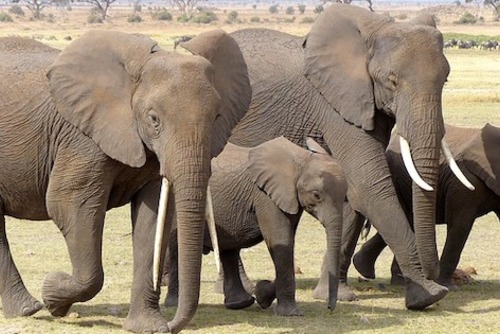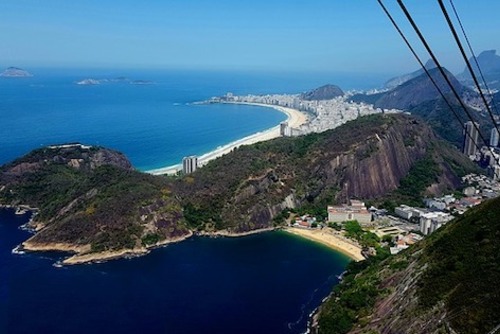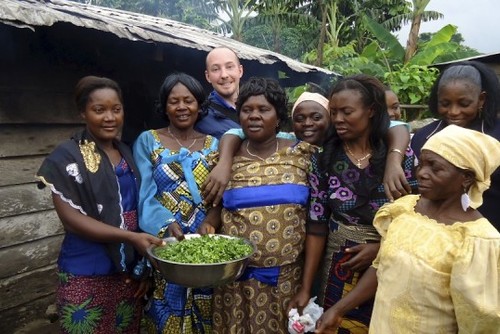Mafanikio Community Based Organization was started in 2003. The main reason for its inception was to offer a platform onto which various developmental issues could be addressed. The driving principles were the alleviation of poverty and suffering and fostering cross cultural understanding and tolerance. It is believed that if the aforementioned are achieved, the world shall be a better and safer place to live.
Globalization has made the world to be like a small village. In line with this phenomenon, the organization has made a deliberate attempt to champion international brotherhood and understanding. MCBO organizes cross cultural exchange programmes where people form all walks of life and nationalities come together to share experiences and work toward the achievement of common goals. Work camps provide this opportunity. These are usually organized in the rural regions of the country and last for 21 days with participants ranging from 10 – 20. These are drawn from all parts of the world and therefore have a chance to share aspects of their cultures with others. Volunteering is not limited to work camp; it extends to teaching in schools and working in health sectors in the rural part of the Kenya.
Work camps
Work camps are usually organized in rural settings and the participants are expected to integrate with the host communities without necessarily losing their identity.
Work camps serve the following purposes;
• Forging unity amongst diverse background
• Mobilizing both human and material resources necessary for solving various problems at a local level.
• Fostering and championing the spirit of self-initiative in the improvement of livelihoods.
• Facilitating cross-cultural interaction that is key in the promotion of peace throughout the country and the world.
• Providing a forum for experimental learning to supplement other modes of learning.
Work camp activities may include;
• Construction work, painting
• Agricultural activities, tree planting
• Teaching in schools e.t.c.
All work camp participants live by local standards and accommodation is very basic; usually school classrooms. Food is prepared by the participants based on locally available foodstuffs. Work camps are organized every year on the months of January, March, May, June, July, August, September, November and December.
Why participate in a work camp?
• Accessing a chance to interact with the local communities at a very personal level
• Accessing a chance to tour the country and make discoveries that you would not have dreamt of before
Work camps are spiced up with several activities that are carried on once the volunteers arrive in the country. While doing the in-country orientation, the volunteers get to visit the Giraffe centre, slums, up town and the Kenya National Museum. They enjoy local entertainment, excursions and a stream of beautiful diverse cultures. Work camp involves construction works, team building training, campaigns against HIV/AIDS and environmental awareness. Mafanikio Community Based Organization was started in 2003. The main reason for its inception was to offer a platform onto which various developmental issues could be addressed. The driving principles were the alleviation of poverty and suffering and fostering cross cultural understanding and tolerance. It is believed that if the aforementioned are achieved, the world shall be a better and safer place to live.
Globalization has made the world to be like a small village. In line with this phenomenon, the organization has made a deliberate attempt to champion international brotherhood and understanding. MCBO organizes cross cultural exchange programmes where people form all walks of life and nationalities come together to share experiences and work toward the achievement of common goals. Work camps provide this opportunity. These are usually organized in the rural regions of the country and last for 21 days with participants ranging from 10 – 20. These are drawn from all parts of the world and therefore have a chance to share aspects of their cultures with others. Volunteering is not limited to work camp; it extends to teaching in schools and working in health sectors in the rural part of the Kenya.
Work camps
Work camps are usually organized in rural settings and the participants are expected to integrate with the host communities without necessarily losing their identity.
Work camps serve the following purposes;
• Forging unity amongst diverse background
• Mobilizing both human and material resources necessary for solving various problems at a local level.
• Fostering and championing the spirit of self-initiative in the improvement of livelihoods.
• Facilitating cross-cultural interaction that is key in the promotion of peace throughout the country and the world.
• Providing a forum for experimental learning to supplement other modes of learning.
Work camp activities may include;
• Construction work, painting
• Agricultural activities, tree planting
• Teaching in schools e.t.c.
All work camp participants live by local standards and accommodation is very basic; usually school classrooms. Food is prepared by the participants based on locally available foodstuffs. Work camps are organized every year on the months of January, March, May, June, July, August, September, November and December.
Why participate in a work camp?
• Accessing a chance to interact with the local communities at a very personal level
• Accessing a chance to tour the country and make discoveries that you would not have dreamt of before
Work camps are spiced up with several activities that are carried on once the volunteers arrive in the country. While doing the in-country orientation, the volunteers get to visit the Giraffe centre, slums, up town and the Kenya National Museum. They enjoy local entertainment, excursions and a stream of beautiful diverse cultures. Work camp involves construction works, team building training, campaigns against HIV/AIDS and environmental awareness.
Mafanikio Community Based Organization was started in 2003. The main reason for its inception was to offer a platform onto which various developmental issues could be addressed. The driving principles were the alleviation of poverty and suffering and fostering cross cultural understanding and tolerance. It is believed that if the aforementioned are achieved, the world shall be a better and safer place to live.
Globalization has made the world to be like a small village. In line with this phenomenon, the organization has made a deliberate attempt to champion international brotherhood and understanding. MCBO organizes cross cultural exchange programmes where people form all walks of life and nationalities come together to share experiences and work toward the achievement of common goals. Work camps provide this opportunity. These are usually organized in the rural regions of the country and last for 21 days with participants ranging from 10 – 20. These are drawn from all parts of the world and therefore have a chance to share aspects of their cultures with others. Volunteering is not limited to work camp; it extends to teaching in schools and working in health sectors in the rural part of the Kenya.
Mafanikio Community Based Organization
Country: Kenya
Location: NAIROBI, KENYA
Mafanikio is a non profit making organization that was started in 2003 to fight poverty through development projects like work camps.
Update Listing
Apply to update this profile.
Learn more about advertising opportunities or contact us for details.
Mafanikio Community Based Organization Reviews

Related Opportunities
Child Care -Masaai Community
- Child Hope Development Organization
- Moshi,Kilimanjaro,Tanzania
- 2 weeks to 3 months
- 250 to 1500 £ Pound (UK)
China School Trip
- That's Mandarin Chinese Language School
- China
- 2 weeks to 6 weeks
- 1000 to 2000 $ Dollars (US)
Serengeti, Falls & Cape Town Adventure
- G Adventures
- Multiple Destinations
- 4 weeks to 6 weeks
- 3000+ to 3000+ £ Pound (UK)
Soccer Assistant Coach in Naples
- International Napoli Network
- Naples
- 2 weeks to 6 months
- 100 to 1500 € Euro
Sri Lanka Wildlife Conservation Volunteering
- Fronteering
- Sri Lanka
- 1 week to 4 weeks
- 1250 to 2000 € Euro
Support Healthcare and Women's Rights, Tanzania
- Jamso Trainee GmbH
- Arusha
- 2 weeks to 1 year
- 100 to 3000+ $ Dollars (US)
Volunteer & Learn Arabic In Palestine
- The Excellence Center in Palestine
- Palestine
- 1 week to 3 months
- 100 to 2500 $ Dollars (US)
Wildlife Volunteer in Greater Kruger National Park
- Hamba Africa
- Greater Kruger National Park
- 2 weeks to 4 weeks
- 1000 to 2000 £ Pound (UK)
Related Articles
Volunteer in Hawaii
Find short and long term volunteer opportunities in Hawaii with non profits, charities and organizations throughout t...
22/07/2017
Volunteer in Kenya
Kenya appeals for so many reasons, there is a gorgeous coast, wildlife, friendly locals and lots of amazing volunteer...
29/07/2019
Supporting Volunteers with Special Needs: 14 Key Steps
Volunteering is an experience which should be open to everyone, no matter, faith, background or ability.
22/08/2024
Volunteer in Hungary
Interested in going to volunteer in Hungary? There are projects available to join for a short and long periods all ye...
05/11/2015
Volunteer in Brazil
Brazil is a country of contrasts, with beautiful beaches, exotic destinations but also extreme poverty with rich and ...
24/02/2015
Non-Governmental Organization (NGO) Jobs & Volunteer Projects
Apply to work for a non-governmental organization (NGO's) which are independent organisations with no connection to g...
12/11/2009

